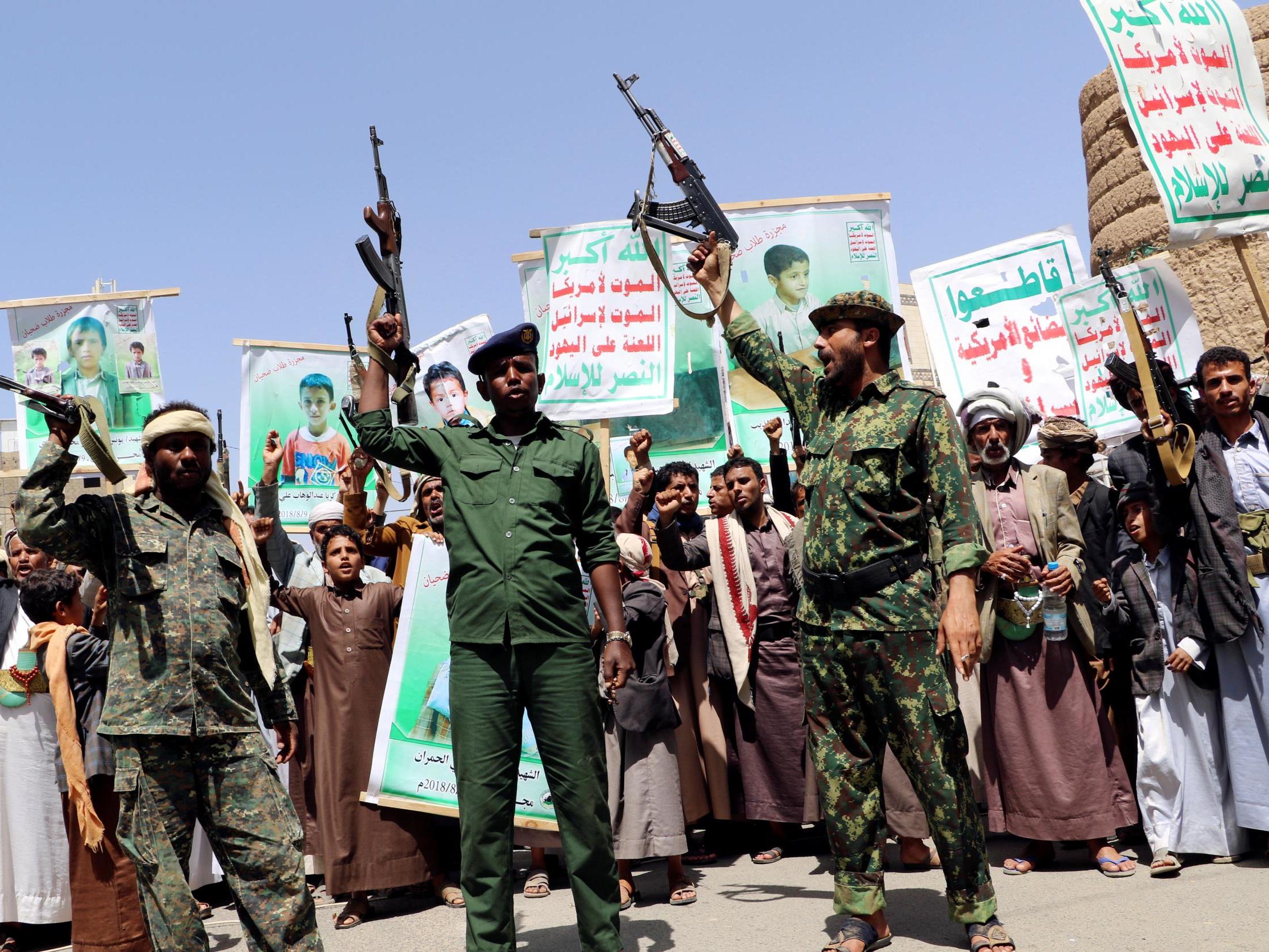Yemen government agrees to UN peace talks after Houthi leader calls for halt to attacks
Talks mark strongest commitments yet from both sides to move towards solution to conflict which has raged for three and a half years

Yemen’s internationally recognised government said it would take part in peace talks after a leader in the Houthi rebel group called for a halt to military operations, raising hopes for a political solution to the country’s ruinous war.
The Saudi-led military coalition that backs government also lent its support to the negotiations, which are set to take place before the end of the year.
The change of heart came just days before Martin Griffiths, the United Nations envoy to Yemen, was due to visit the war-ravaged country to encourage all sides to join the talks.
Yemen’s foreign ministry said on Monday that the government “has informed the UN envoy to Yemen... that it will send a government delegation to the talks with the aim of reaching a political solution”.
The statement was made just hours after Mohammed Ali al-Houthi, considered the political decision maker of the Houthis, tweeted that he wanted the rebels to announce “readiness to suspend and halt all military operations” and stop firing missiles on Saudi Arabia.
In a surprising turnaround, he called on “all [Houthi] official Yemeni sides to issue directives to end launching missiles and drones against aggression countries ... in order to deprive them from any reason to continue their aggression and siege”.
He also said the rebels should be ready “to freeze and stop all military operations on all fronts” to achieve “a just and honourable peace”.
It marked some of the strongest ever commitments from both sides to move towards a solution to the conflict which has raged for the last three and a half years, sparking the world’s worst humanitarian crisis in terms of numbers.
Yemen, the Gulf’s poorest country, has been ripped apart by the fighting which erupted in the spring of 2015 when Houthi rebels swept control of the country, ousting the recognised president Mansour Hadi.
Saudi Arabia and Gulf allies including the United Arab Emirates launched a bombing campaign to reinstate Mr Hadi, and more recently launched a fresh offensive to recapture the strategic Red Sea port city of Hodeidah, currently home to over 300,000 people.
The Gulf coalition also imposed a land, sea and air blockade, which together with Houthi sieges on different parts of the country has pushed it to the brink of famine.
Over 57,000 people have been killed due to the fighting while thousands more have perished due to hunger according to estimates by Associated Press.
More than 22 million people, or two-thirds of the population, now rely on aid to survive, while over 8 million people are currently starving. The UN and aid groups like Save The Children warn that if the offensive on Hodeidah continues, and food prices continue to soar, a total of 13.4 million people or half the country will rely on food aid to survive.
Yemen's Socotra Island, the 'Jewel of Arabia'
Show all 17Mr Griffiths, the UN’s Yemen envoy, has been struggling to kick-start peace talks that collapsed in Geneva in September, when the Houthi delegation refused to attend talks over several ultimatums including that their wounded be treated in Oman or Europe, a demand which was recently granted.
Mr Griffiths has announced that he will be visiting Sanaa, Yemen’s capital next week, to make the final arrangements for the peace talks which will take place in Sweden.
He said both sides of the conflict have shown a “renewed commitment” to work on a political solution.
However, the situation remains unpredictable. Houthi-run Al Masirah TV reported on Monday that Houthi forces fired a ballistic missile on Saudi-backed forces in the desert of Midi, bordering Saudi Arabia.
Subscribe to Independent Premium to bookmark this article
Want to bookmark your favourite articles and stories to read or reference later? Start your Independent Premium subscription today.

Join our commenting forum
Join thought-provoking conversations, follow other Independent readers and see their replies